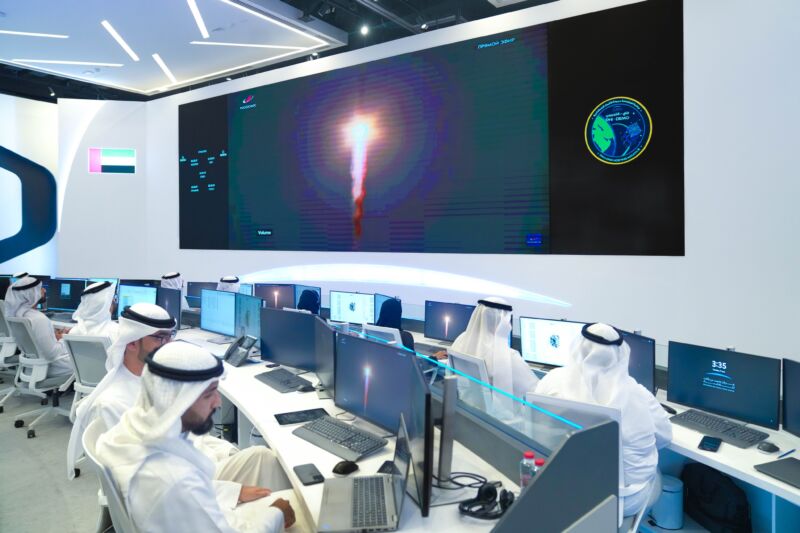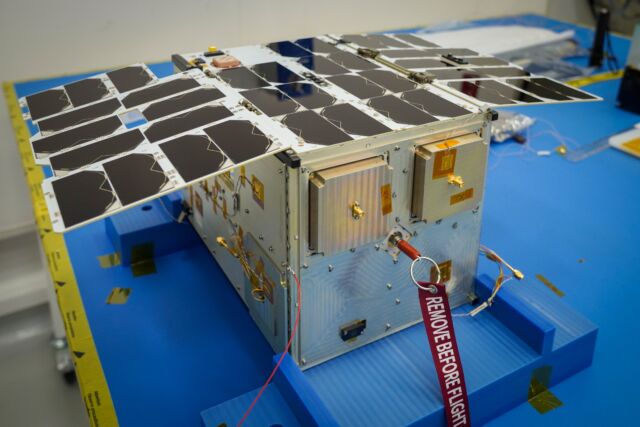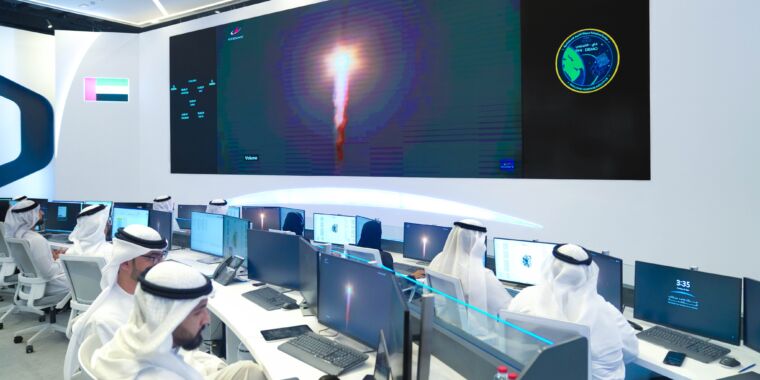
For the first time since the invasion of Ukraine essentially cut off the Russian space industry from foreign customers, a Russian rocket lifted off on Tuesday carrying satellites into orbit using commercial technology from Western companies.
The payloads of companies in the United Kingdom and Luxembourg flew on a satellite owned by the United Arab Emirates, which have had warmer relations with Russia than with Western countries. While the payloads are small, their presence at Tuesday’s launch is notable after the war in Ukraine, and the ensuing Western sanctions effectively embargoed U.S. and European space technology on Russian missiles.
UK and European Union sanctions introduced after the 2022 invasion of Russia prevent the export of a wide range of space technology to Russia. Companies from the United States, Europe, Japan, South Korea and other countries have removed their satellites from Russian rockets, mainly to switch them to launch vehicles from SpaceX, Rocket Lab and India.
The European Space Agency ended a cooperation with Russia on Mars exploration within weeks of the invasion of Ukraine.
Russia launched an Angolan communications satellite last year, but that mission was part of an intergovernmental agreement. Russia continues to launch US astronauts to the International Space Station through a no-money deal with NASA.
The launch began Tuesday with the launch of a Soyuz rocket from the Vostochny Cosmodrome, located in the far east of Russia, at 7:34 a.m. ET (11:34 UTC). The Soyuz booster and its Fregat upper stage successfully launched a Russian civilian weather satellite into polar orbit and then deployed 42 secondary payloads, mostly CubeSats from Russian companies and universities.
There were three small foreign satellites on the Soyuz launch manifest. One came from Belarus, a staunch Russian ally, and the others came from the UAE and Malaysia.
“What surprised me about the others is that they both have commercial elements with ties to the West,” said Caleb Henry, director of research at Quilty Space, an analysis and consulting firm for the satellite industry.
The mission of the 44-pound (20-kilogram) UAE satellite, dubbed PHI-Demo, is to serve as a host platform for two European technology demonstration experiments. The PHI-Demo spacecraft houses a 5G communications payload from a Luxembourg company called OQ Technology that supports data transfer and asset monitoring applications. Also on board is an experimental water-powered resistojet thruster developed by British company SteamJet Space Systems, which claims to specialize in environmentally friendly propulsion that can deliver dozens of times more thrust than electric propulsion.

Dubai-based Mohammed Bin Rashid Space Center, which owns and operates the PHI-Demo spacecraft, said it developed the satellite in collaboration with the UAE’s private space sector and research institutions. Britain’s SteamJet and Luxembourg’s OQ Technology signed agreements with UAE officials to place their payloads on the PHI-Demo satellite, while the Emiratis were responsible for selecting the Russian launcher.
Another foreign satellite from Malaysia was also at the launch of the Soyuz rocket on Tuesday. The Malaysian CubeSat is the first spacecraft owned by a high-ambition company called Angkasa-X, which calls itself the “SpaceX of Asia,” to provide broadband internet coverage for the Asia-Pacific region.
Angkasa-X is backed by Greenpro Capital Corp., a Nasdaq-listed Malaysian business incubator headquartered in Kuala Lumpur and registered in Nevada. Officials from the UAE, SteamJet, OQ Technology and Malaysia’s Angkasa-X did not respond to questions from Ars.
“A deviation”
The UAE and Malaysian satellite operators booked their rides on the Soyuz launch Tuesday through Russian intermediaries, including a Russian private company called Aerospace Capital and Glavkosmos, a subsidiary of the Russian space agency Roscosmos. A German company originally involved in brokering rides for international satellites on the Soyuz rocket withdrew from the mission.
Russian, UAE and Malaysian officials have not disclosed launch prices for the Soyuz flight. But it’s hard to imagine Russia undercutting SpaceX’s price for a small satellite to ride on one of its Falcon 9 rideshare missions without selling the Soyuz launch service below cost. A 20-kilogram satellite like the UAE’s PHI-Demo mission would have cost $330,000 to launch on a Falcon 9 rocket, according to a contest tool on SpaceX’s website.
A manager of an international 2021 launch broker said SpaceX’s rideshare launch prices were the “cheapest yet”.
Henry said he sees no indication of wider acceptance in the commercial satellite industry of resuming launches on Russian missiles.
“What I suspect is that companies that have chosen to launch Soyuz after the Russian invasion of Ukraine are finding that this move has sparked the interest of customers and investors in large parts of the world, especially in Europe and the US,” said Henry. . “The recent Soyuz launch seems more like an anomaly than a trend, but it’s too early to comment on that.”

